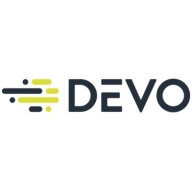

Apica and Devo compete in technology solutions, focusing on performance monitoring and data analytics. Devo appears to have the upper hand due to its advanced analytics capabilities, which are valued despite its higher cost.
Features: Apica provides comprehensive monitoring solutions, real-time insights, and competitive pricing. Devo offers strong data analytics capabilities, an integrative approach with multiple data sources, and a robust feature set, making it preferred for deeper analytics functionalities.
Room for Improvement: Apica can enhance reporting capabilities, integration options, and the intuitive nature of its tools. Devo users want improved onboarding processes, simpler deployment options, and expansion in interoperability with other systems.
Ease of Deployment and Customer Service: Apica is known for straightforward deployment processes and responsive customer support. Devo, although having a more complex deployment, receives positive feedback for its supportive team.
Pricing and ROI: Apica stands out for its cost-effective setup and consistent ROI. Devo’s higher costs are seen as justified by its superior capabilities, providing a satisfactory ROI for those valuing comprehensive features.


Apica offers a unified platform to remove complexity and cost associated with data management. You collect, control, store, and observe your data and can quickly identify and resolve performance issues before they impact the end-user. Apica Ascent swiftly analyzes telemetry data in real-time, enabling prompt issue resolution, while automated root cause analysis, powered by machine learning, streamlines troubleshooting in complex distributed systems. The platform simplifies data collection by automating and managing agents through the platform’s Fleet product. Its Flow product simplifies and optimizes pipeline control with AI and ML to help you easily understand complex workflows. Its Store component allows you to never run out of storage space while you index and store machine data centrally on one platform and reduce costs, and remediate faster. Observe offers modern observability data management, helping you with MELT data, effortless dashboarding, and seamless integration of synthetic and real data.
Devo is the only cloud-native logging and security analytics platform that releases the full potential of all your data to empower bold, confident action when it matters most. Only the Devo platform delivers the powerful combination of real-time visibility, high-performance analytics, scalability, multitenancy, and low TCO crucial for monitoring and securing business operations as enterprises accelerate their shift to the cloud.
We monitor all Log Management reviews to prevent fraudulent reviews and keep review quality high. We do not post reviews by company employees or direct competitors. We validate each review for authenticity via cross-reference with LinkedIn, and personal follow-up with the reviewer when necessary.